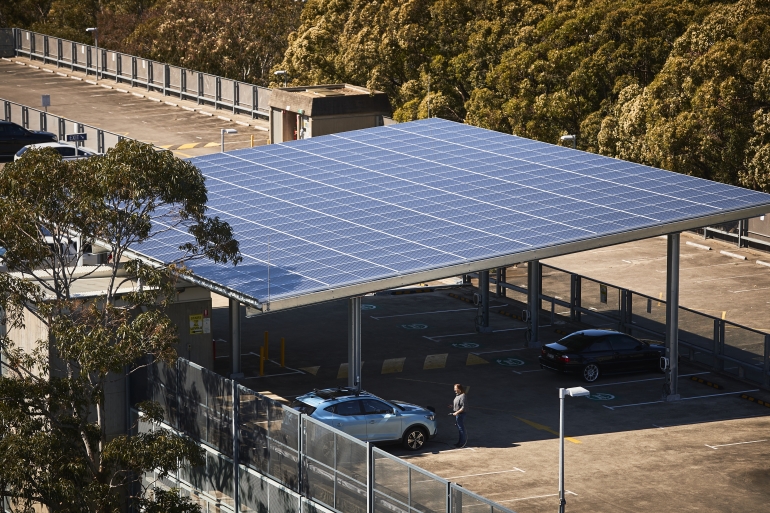Students, staff and visitors can now charge up their electric vehicles on UNSW’s Kensington campus using renewable energy – thanks to a new solar car park array installed on the rooftop level of the Botany Street car park. One of the largest electric vehicle charging facilities in Sydney.
Six new electric vehicle charging stations, powered by PERC solar cells that use technology developed at UNSW, are available for use by students, staff or members of the public who pay to park in the Botany Street car park.
The project has been funded thanks to a $220,000 donation from philanthropist Mark Tidswell, who is a strong advocate of renewable energies and long-time financial supporter of the School of Photovoltaic and Renewable Energy Engineering (SPREE).
The solar array will also be used as a teaching tool for SPREE students with all revenue generated by these EV chargers flowing back into the School.
This project contributes to UNSW achieving its sustainability goals. Solar photovoltaics and electric vehicles are ideally placed to assist Australia to transition to a clean and sustainable future.
